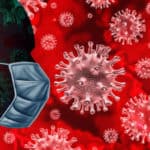Herbal Components are Beneficial in Treating Cirrhosis
The efficacy of Liv.52 on liver cirrhotic patients: A randomized, double-blind, placebo-controlled first approach.
Cirrhosis is the irreversible sequel of various disorders that damage liver cells permanently over time. Presently, the use of herbal medicines for prevention and control of chronic liver diseases is in the focus of attention for both the physicians and the patients; the reasons for such shift toward the use of herbals include the expensive cost of conventional drugs, adverse drug reactions, and their inefficacy. In the present study, the efficacy of herbal medicine Liv-52 (consisting of Mandur basma, Tamarix gallica and herbal extracts of Capparis spinosa, Cichorium intybus, Solanum nigrum, Terminalia arjuna and Achillea millefolium) on liver cirrhosis outcomes was compared with the placebo for 6 months in 36 cirrhotic patients referred to Tehran Hepatic Center. The outcome measures included child-pugh score, ascites, serum alanine aminotransferase (ALT), aspartate aminotransferase (AST), total billirubin, albumin, prothrombin time, platelet and white blood cells counts. The indices were recorded in all patients before and after 6 months of drug or placebo treatment. The results demonstrated that the patients treated with Liv-52 for 6 months had significantly better child-pugh score, decreased ascites, decreased serum ALT and AST. In placebo administered patients all the clinical parameters recorded at beginning of the study were not significantly different than after 6 months. We conclude that Liv-52 possess hepatoprotective effect in cirrhotic patients. This protective effect of Liv-52 can be attributed to the diuretic, anti-inflammatory, anti-oxidative, and immunomodulating properties of the component herbs.
More information about Liv.52 can be found at http://www.liversupport.com.
Abstract: “The efficacy of Liv.52 on liver cirrhotic patients: A randomized, double-blind, placebo-controlled first approach,” H. Fallah Huseini, S.M. Alavian, R. Heshmat, M.R. Heydari and K. Abolmaali, Phytomedicine; 12:9; September 2005 (DOI:10.1016/j.phymed.2004.10.003)







